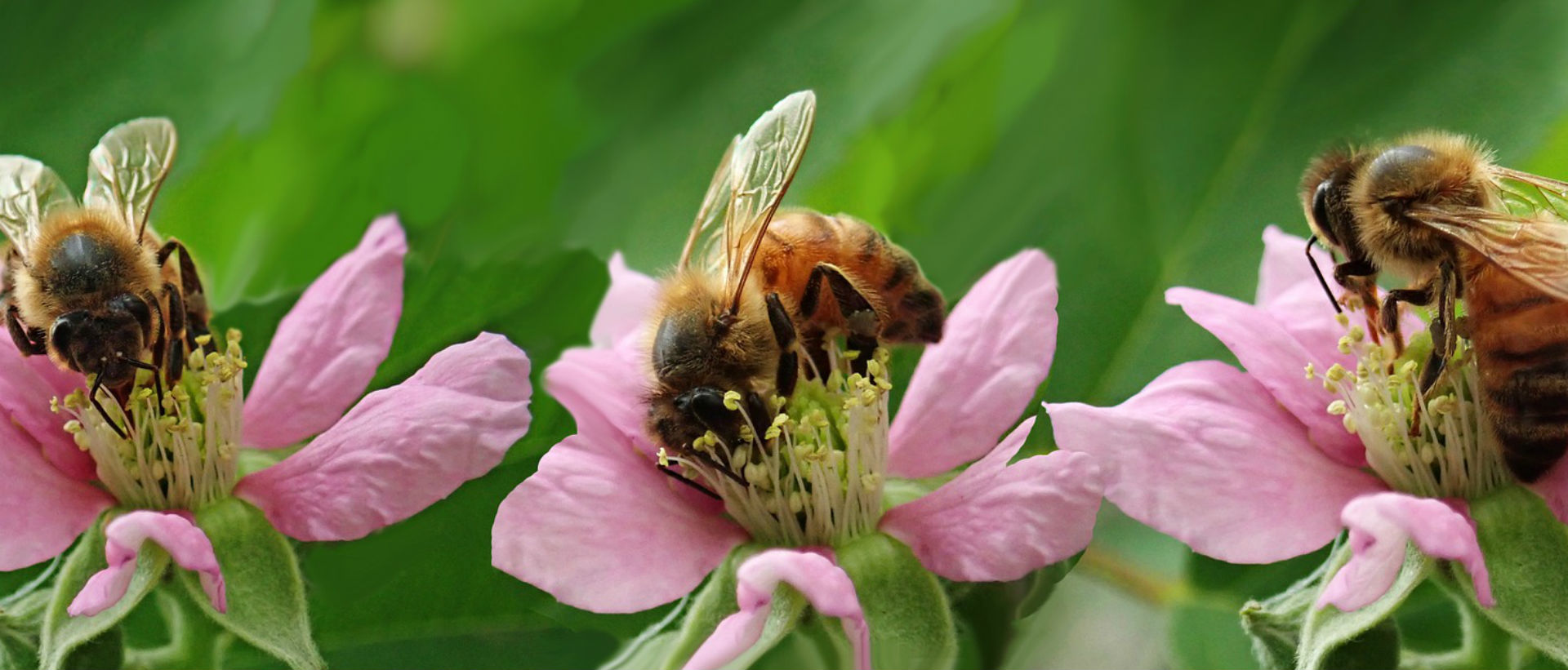Overview
Across the country, residential areas are embracing agricultural roots by adopting urban farming initiatives. Arapahoe County recently approved new regulations to allow backyard bee and chicken keeping in unincorporated residential areas. These rules were a result of a two-year, community driven process to balance the needs and concerns of residents.
Learn more:
Beekeeping

Beekeeping is becoming increasingly popular as residents return to agricultural roots. Yet the decision to keep bees should not be taken lightly. A new beekeeper should take classes and network with experienced beekeepers to learn about the commitment needed. Here are some key items for first-time keepers to consider:
- Hives require ongoing time, money and maintenance. If a new beekeeper does not follow best practices, they could contribute to the spread of deadly diseases that are harming the honey bee population.
- All bee keeping equipment needs to stored in sealed containers, or placed within a building or other insect-proof container. This will prevent diseases from spreading to other hives and prevent attracting pests to the area.
- Bees need water. Provide a source of water on your property. Bees will find the closest water source, which could be a neighbor’s pool or hot tub.
- Be a courteous neighbor. Be proactive about letting your neighbors know you will have hives and provide necessary education as needed.
- You don’t have to be a bee keeper to help protect pollinators! Colorado has over 900 species of native bees that are critical to pollinating our food crops and other plants. Providing bee-friendly flowers and shelter for native bees is a great way to contribute to pollinator conservation.
Here are a list of resources to begin learning about beekeeping. More questions? Call 303-730-1920
Beekeeping and Honey Bee information
Best Management Practices for Hive Health
Diseases and Pests
Bee Disease Diagnosis Service
Varroa Mite Management Decision Tool
Bee and Wasp Fact Sheet
European Paper Wasp Fact Sheet
Colorado Bee Keepers Association
Swarm Hotline
Honey Bee Hive Management
Protecting Pollinators
Bee Biology, Identification and Citizen Science
Attracting Native Bees to Your Landscape
Creating Pollinator Habitat
Additional Websites
Chickens
Highly Pathogenic Avian Influenza (HPAI) has been found in Colorado. Learn how to protect your flocks and prevent the spread.
Highly Pathogenic Avian Influenza 2022 Outbreak
HPAI Fact Sheet
Defending your flock
USDA APHIS Defend the Flock Program
Many families are thinking about getting a small flock of laying hens in their backyard. While backyard chicken keeping is becoming more popular, it may not be suited for everyone. Avoid winging it – take advantage of free resources to support your flock:
What to think about BEFORE you get backyard chickens
Brooding and space requirements
Chicken equipment and housing blueprints
Utah State University Extension Poultry Resources
Feeding a small and backyard poultry flock
Managing flies, pests, birds, and rodents
Horticulture Resources
- Garden Buzz Archives
- CSU Extension Resources
- Colorado Master Gardener Program
- Foothills to Plains Native Plant Master Program
- Native Bee Watch Community Science Program
- The Co-Hort Blog
- PlantTalk Colorado
- Soil Testing
- Plant Select
- Emerald Ash Borer
- Japanese Beetle
- Colorado State Forest Service
- Ask an Expert




